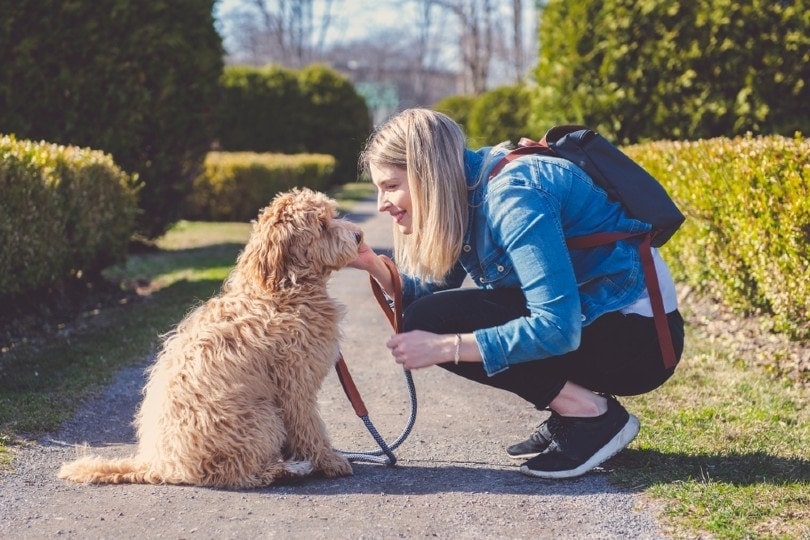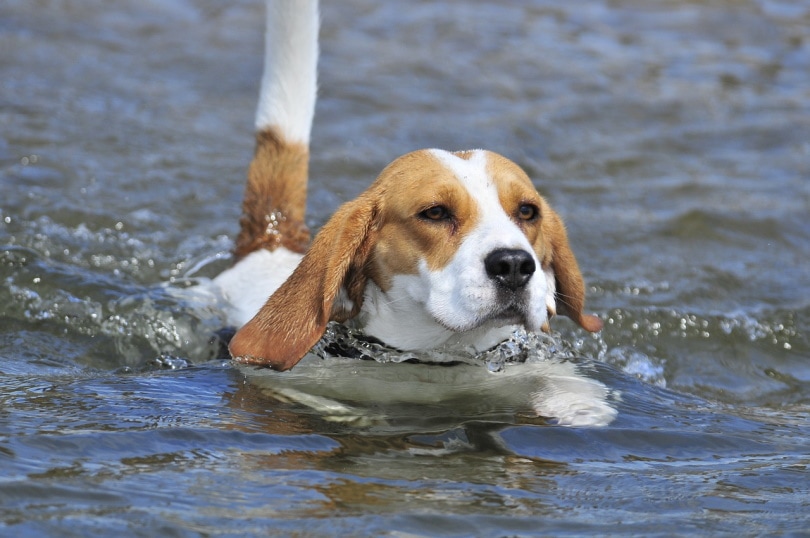Male vs Female Miniature Schnauzer: Key Differences & Similarities (With Pictures)

Updated on
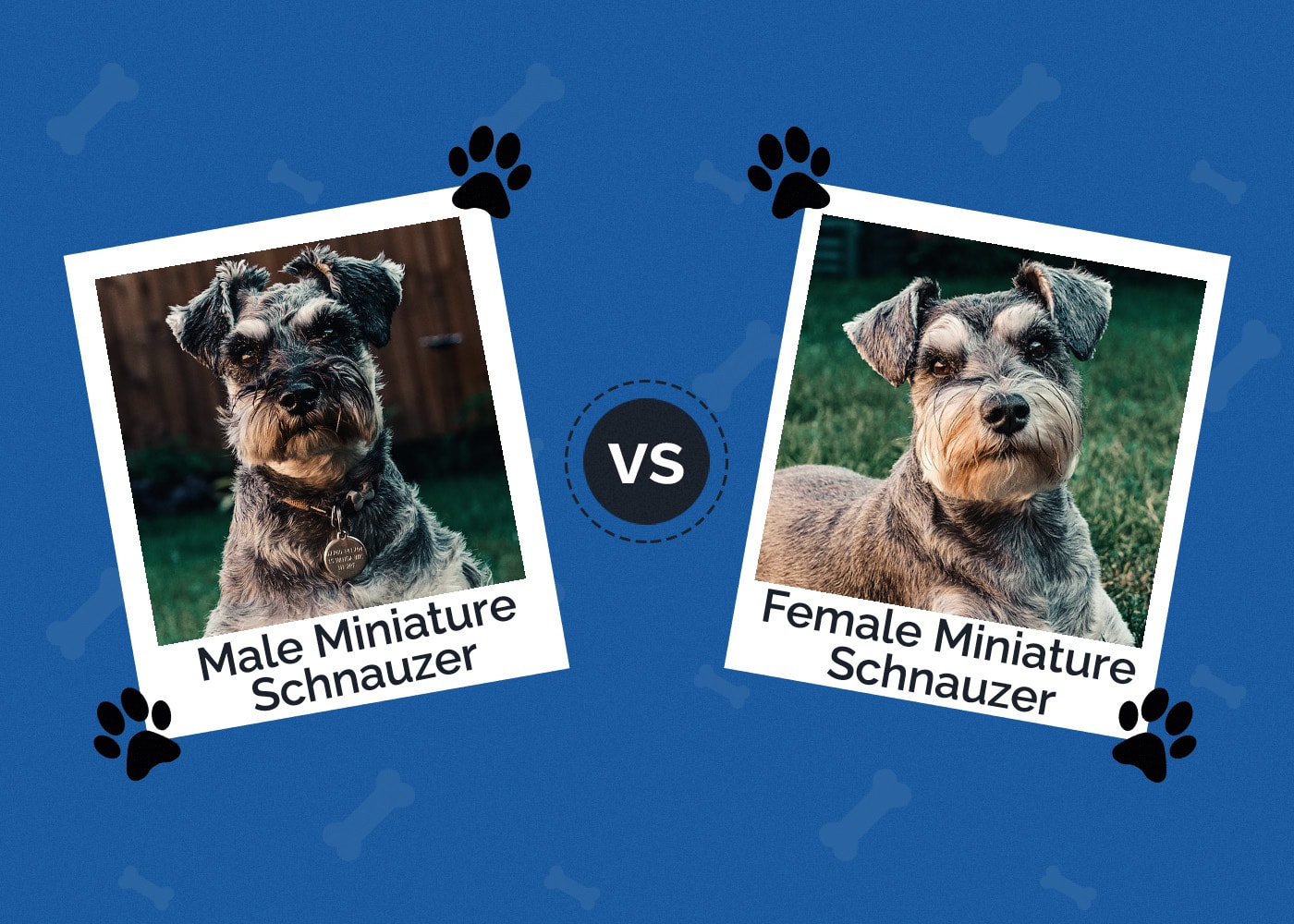
The Miniature Schnauzer is a fearless, friendly, and intelligent dog that makes a brilliant addition to any family. You might be thinking of bringing one of these beautiful dogs home, but you’re not sure which gender would be better for your family. That is where we can help! We’ll discuss both genders in detail so you can decide which would be best for you and your family.
Visual Differences

At a Glance
- Average height (adult): 8–14.1 inches
- Average weight (adult): 9–20 pounds
- Average height (adult): 10–13.4 inches
- Average weight (adult): 9–18 pounds
Miniature Schnauzer 101
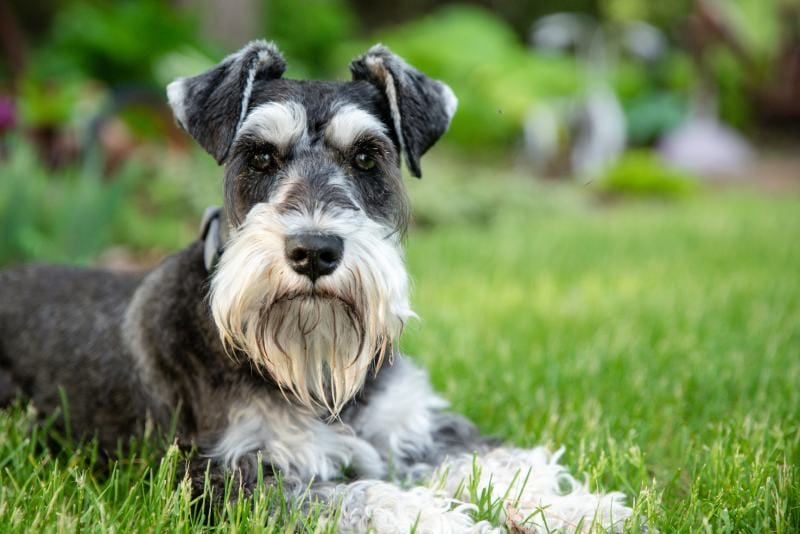
Miniature Schnauzers are the smallest of the three Schnauzer breeds, which are the Standard and Giant Schnauzers, and they were bred down from the Standard Schnauzer. They originated in Germany, where their name means “snout,” and were initially bred to be farm dogs and ratters. They are robust little dogs that are bright and highly trainable. They get along with other pets well, children love them, and as long as they are given lots of opportunities to exercise, they can adapt to apartment living.
The Miniature Schnauzer is known for its bushy eyebrows and beard, which give it an almost human-like expression. Their coats are wiry and firm, and they come in three basic colors: solid black, salt and pepper, and black and silver. They’re ideal for active families that love spending time outdoors, as they’re a lively, alert breed that loves nothing more than playing and romping in the yard.
Males tend to be larger in weight and height than females; they’re also usually more muscular than their female counterparts. However, it’s not a given, and you could end up with a large, muscular female!
Male Miniature Schnauzer Overview
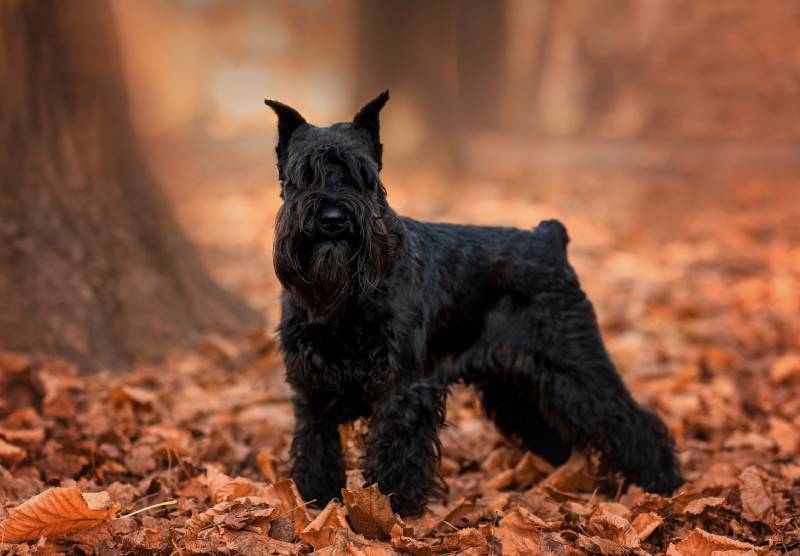
Personality / Character
The male Miniature Schnauzer is always happy to play and won’t ever get bored of trying new things with his family. He’s even-tempered, which means he won’t ever be grouchy with you, even if he’s tired. Males are more clingy than females and more likely to bond with the whole family, unlike females, who pick one person as their favorite. They are very alert dogs and will warn you if there are any intruders. If you pick a male Miniature Schnauzer, you’re investing in a friend for life who will always be up for an adventure!
Training
The male Miniature Schnauzer is intelligent but also playful, which can make training a challenge because it’s difficult for him to stay focused for a long time. You’ll have to be patient and firm because the training process can be time-consuming. It generally takes longer to house train the male of this breed in leash training and house training. Males can be stubborn and easily distracted, but if you’re ever struggling with your training journey, you can always enroll in a dog training course.

Health & Care
Male Miniature Schnauzers are usually very healthy and live to be around 12–14 years old, much like females. However, there are some common health issues that you should be aware of:
- Atopy
- Cataracts
- Dental problems
- Heart problems
- Pancreatitis
- Progressive retinal atrophy
- Skin conditions
When caring for your male Miniature Schnauzer, you will need to feed him a high-quality diet, take him to the vet for regular appointments, and maintain his coat. His coat will need brushed and trimmed regularly, his nails will need clipping, and you will be responsible for brushing his teeth using toothpaste and a toothbrush made specifically for dogs.
- Bonds with the whole family
- Generally very healthy
- Excellent with children and loves to play
- Alert and can warn you about intruders
- Challenging to train
- Stubborn
- Easily distracted
- Clingy
Female Miniature Schnauzer Overview

Personality / Character
Like the males, the female Miniature Schnauzer is loyal and friendly and will be the perfect addition to family life. They’re loving and playful with their family and get along with other pets and children, although they are likelier to be wary of children than the males. While she will play with children, it probably won’t be as long as the males, and she can be a little more impatient.
Females can be more territorial than males and more aggressive when it comes to defending their territory. However, they’re more likely to attack a female dog than a male, so if you already have a female and are thinking of adding to your family, then pick a male dog to avoid having to break up countless fights. Like the males, female Miniature Schnauzers are also very alert and will let you know if intruders are on your property. The female Miniature Schnauzer is more independent than her male counterpart, but that doesn’t mean she would ever turn down the chance to play hard in the yard with her favorite people.
Training
While the female Miniature Schnauzer is generally housebroken faster than the male, she has an independent streak that might make training in other areas more challenging. This will require you to be firm and persistent if you’re leash or command training. They love getting praise, so a gentle hand is always preferable, but they are slightly less eager to please than males.
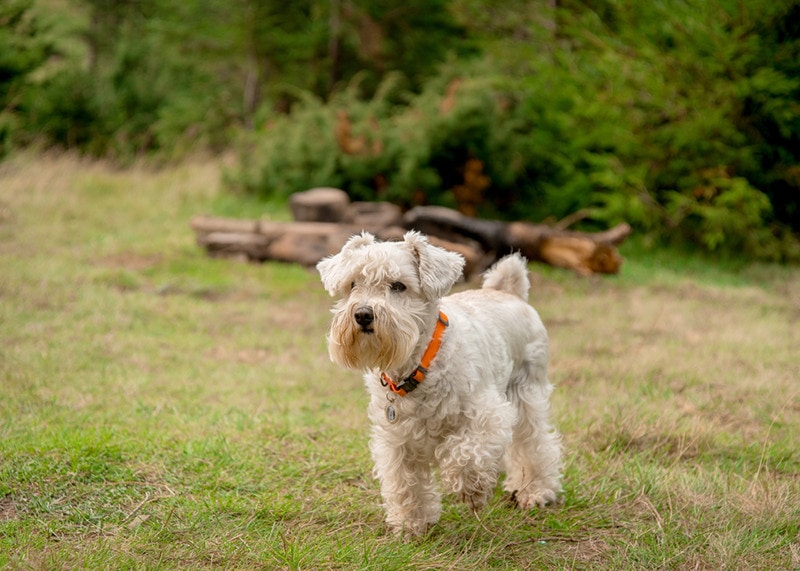
Health & Care
Just like the male, the female Miniature Schnauzer is generally very healthy with a long lifespan. However, there are some health conditions you will need to be aware of:
- Atopy
- Cataracts
- Cushing’s disease
- Heart disease
- Kidney stones
- Ovarian cysts
- Pancreatitis
- Skin conditions
You will be required to feed your female Miniature Schnauzer a high-quality diet and ensure she gets plenty of exercise to keep her healthy and happy. If you aren’t planning on breeding your dog, make sure to get her spayed as soon as possible because there are health risks associated with females that haven’t been spayed.
Regular grooming is also essential, and you will need to take care of her dental health. Like humans, it’s recommended that you brush your dog’s teeth twice a day or a minimum of three times a week.
Breeding
If you don’t have experience breeding dogs, it’s crucial to get in touch with an experienced breeder before you jump into the situation. Make sure you don’t breed a female until she reaches full maturity. It takes a lot of patience, time, money, and know-how to successfully breed your dog. Not only will the health of your female Miniature Schnauzer be your responsibility, but so will her puppies. So do your research and ensure you know what you’re getting into first.
- Independent but also loves to play
- Will allow you some time to yourself
- Alert and will warn you about intruders
- More focused and easier to train
- More territorial than the male
- Will fight with another female dog in the house
- Independence streak makes training difficult
Which Gender Is Right for You?
It might seem like there aren’t glaring differences between the males and females of this breed, but every detail is important when making a decision. Bringing a pet into your home is a huge decision, so you must be as informed as possible.
Females are easier to train in some ways because they aren’t as easily distracted as the males, but they are also more territorial. Males are clingier than females, but they do not focus all their attention on one family member like females. Whichever gender you pick, the Miniature Schnauzer is a wonderful family dog, and we’re sure you’ll forget what life was like before its arrival in no time!
Featured Image Credit: Sebastian Coman Travel, Unsplash



